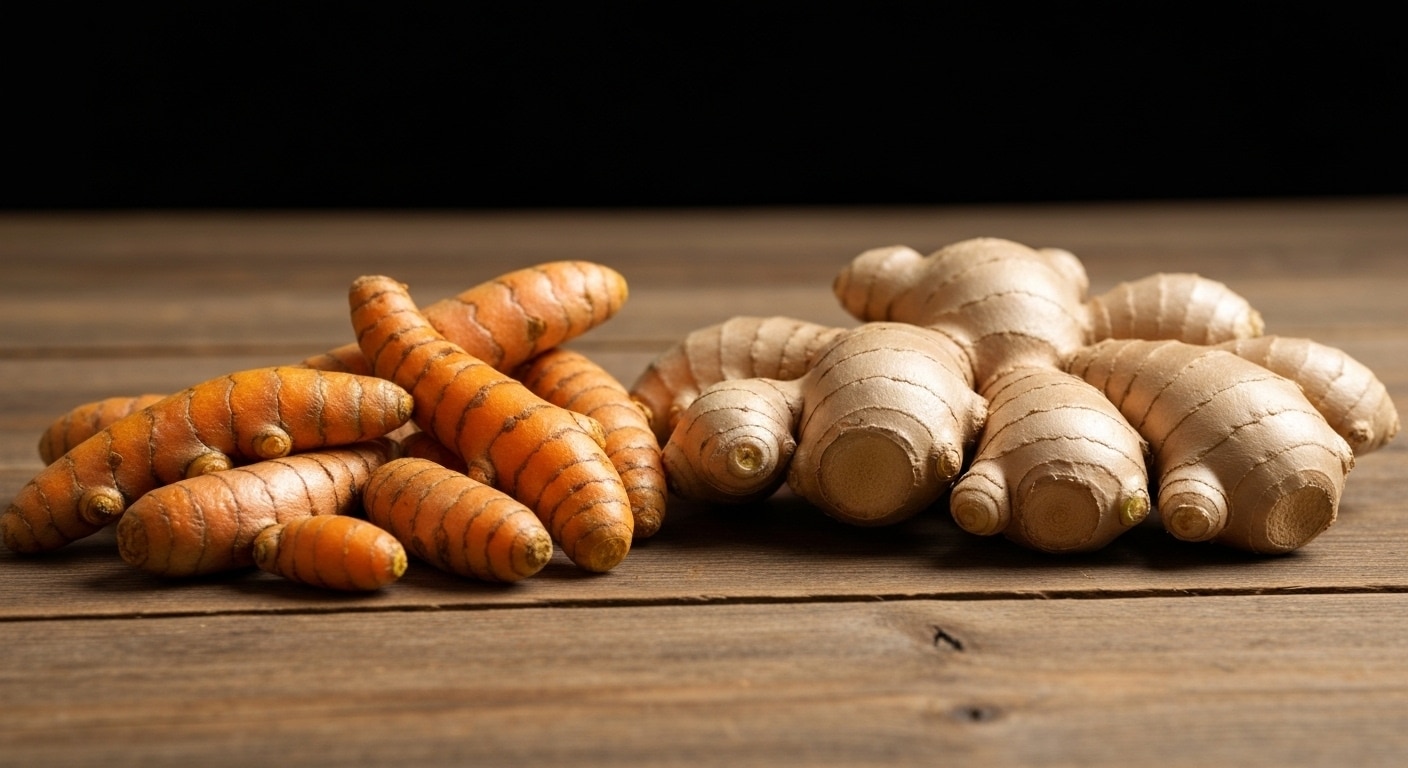
Turmeric vs. Ginger: What a Short, Careful Trial Really Found
Summary page found here:
Why this study matters
When most of us think of turmeric and ginger, we picture spices, not research-grade capsules. This study put them to the test in a careful way.
Who was studied and how the trial worked
Researchers in Iran enrolled 144 adults with mild, at-home COVID-19. People were randomly assigned—so neither they, their clinicians, nor the study team knew who got what—to turmeric, ginger, or a look-alike placebo. Everyone took a 500 mg tablet three times a day for five days. Before starting and again on day six, the team checked four routine blood tests. Two—CRP and ESR—are widely used markers of inflammation.
What the researchers found
Both the turmeric group and the ginger group showed bigger drops in CRP and ESR than placebo over those five days. The other tests—white blood cell count and LDH—didn’t really change, and there was no clear winner between the two herbs. In practical terms: for a short, mild illness managed at home, either herb at 500 mg three times daily was linked to a modest drop in inflammation markers by week’s end.
How to interpret the results (and what they don’t show)
There are good reasons to trust the signal here: the trial was triple-blind, randomized, and placebo-controlled—hallmarks of a well-run human study. Still, it focused on lab markers, not how quickly symptoms resolved or who avoided complications. The five-day window leaves open questions about longer use, and the products weren’t the “enhanced absorption” versions you sometimes see for turmeric.
Safety notes
A small number of participants stopped because of stomach upset or hot flashes—consistent with concentrated doses of these herbs. People who are pregnant, on blood thinners, or managing bleeding risks should check with a clinician before using concentrated herbal tablets.
Practical takeaway
If you’re choosing between turmeric and ginger based on this trial, the study doesn’t name a winner. Let availability, cost, taste, and personal tolerance guide you. The bigger picture: both nudged inflammation markers in the right direction in a short, real-world scenario. Future research should follow patients longer, use standardized, bioavailable formulations, and track outcomes people feel—like days of symptoms and quality of life. Until then, treat this as complementary to standard care, not a replacement.
Masterful Display
Each and everyone of our products are deeply considered, labored over, and improved upon time and time again. We invite you to experience the difference of our carefully crafted small batches of herbal support items. Whether it be our tea line, produced for a delightful experience, or our tincture blends and extracts, we have what you need.

